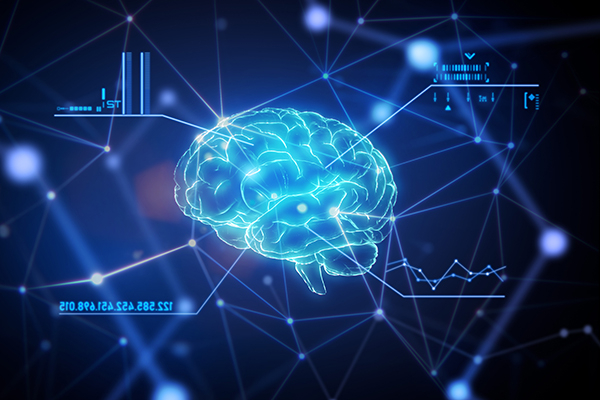
Dr. Helena Garay and Dr. Josep Alemany, researchers at the Universidad Internacional Iberoamericana (International Iberoamerican University, UNIB), are participating in a study that develops a method to decode brain signals more accurately from electroencephalograms with the help of deep learning.
The human brain is a complex organ that holds the key to understanding perception and interaction with the world. Scientists have long tried to decode brain signals to obtain information about how visual information is processed. Thanks to the development of technology, significant advances have been made in this field by using deep learning techniques to analyze electroencephalography (EEG) signals from rapid events.
EEG is a non-invasive method that measures the electrical activity of the brain using electrodes placed on the scalp. By recording these signals, valuable information can be obtained about the brain's response to different stimuli, such as visual images. The information obtained from these signals can be used for emotion recognition, sleep stages, prediction of critical thinking, detection of speech activity in mute patients, among others. But, brain signals change depending on mental state, cognitive processes and other factors, therefore, decoding these signals accurately has proven to be a challenging task. One of the reasons for this is the design of the temporal stimulation used in the experiments. Traditionally, researchers have used block stimulation, where a single stimulus is presented over an extended period. However, this approach fails to capture the dynamic nature of the brain's response to rapid events.
On the other hand, there are several techniques for collecting brain signals, such as fMRI, PET, ECoG, MEG and EEG. Although fMRI and PET provide high spatial resolution, they cannot be used for visual object recognition due to their lack of temporal nature. The ECoG technique provides excellent temporal and spatial resolution, but is invasive. MEG provides high temporal and spatial resolutions and is noninvasive, but its high cost and immobility hinder its use. In contrast, EEG provides data with high temporal resolution and is suitable for object classification tasks.
To overcome these limitations, the study involving UNIB researchers conducted a series of experiments using fast event EEG signals. They collected data from participants who were shown a series of visual stimuli in rapid succession. These stimuli were carefully designed to elicit specific brain responses, which allowed the researchers to analyze the corresponding EEG signals. Deep learning algorithms, a branch of artificial intelligence that mimics the workings of the human brain, were used for such analysis. These algorithms were trained to recognize patterns in the EEG data and associate them with specific visual stimuli, allowing them to accurately decode the brain's response to visual stimuli.
The results of the study are promising, as the deep learning model achieved significantly higher accuracy in decoding the signals compared to traditional methods. This advance has the potential to revolutionize the understanding of how the brain processes visual information and opens up new possibilities for applications in fields such as neuroscience, psychology and human-computer interaction.
In conclusion, the study highlights the importance of using fast event stimulation and deep learning techniques in decoding brain signals from EEG data. By harnessing the power of artificial intelligence, significant progress is being made in understanding the complex workings of the human brain. This research has the potential to pave the way for breakthroughs in a variety of fields and improve our understanding of the human mind.
If you want to learn more about this study, click here.
To read more researchers, consult the UNIB repository.
The Universidad Internacional Iberoamericana (UNIB) offers the Master's program in Strategic Management with Specialization in Information Technology. A program that provides professionals with the skills and capabilities needed to manage management positions and lead organizational change projects using ICTs or advise companies that want to join the competitiveness of new businesses. Join the business development by studying our master's program and get ready to take your career to the next level!